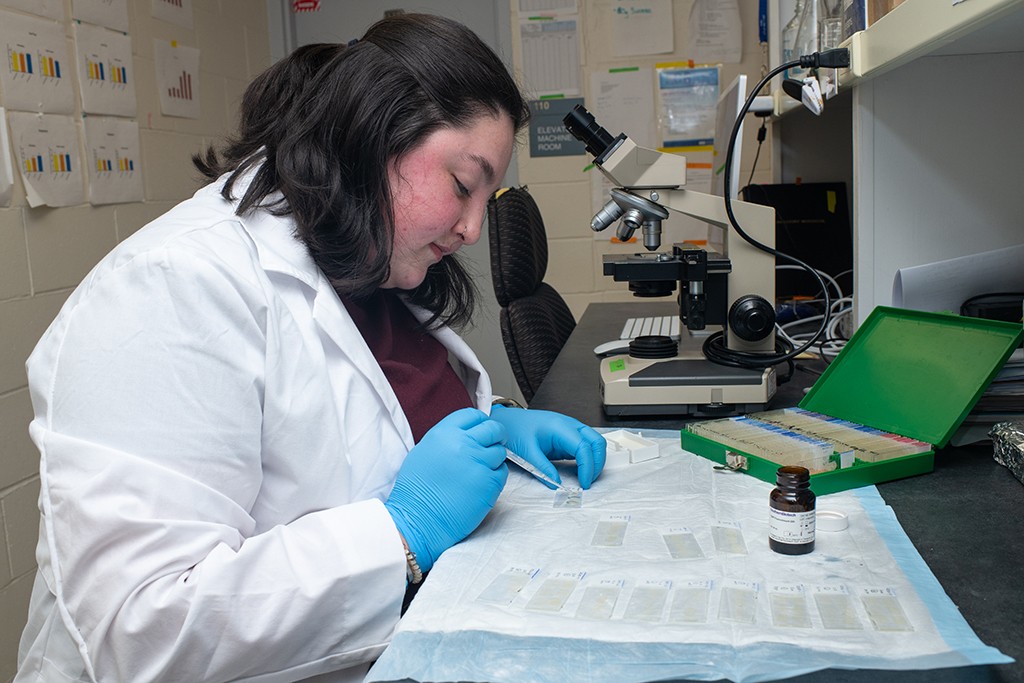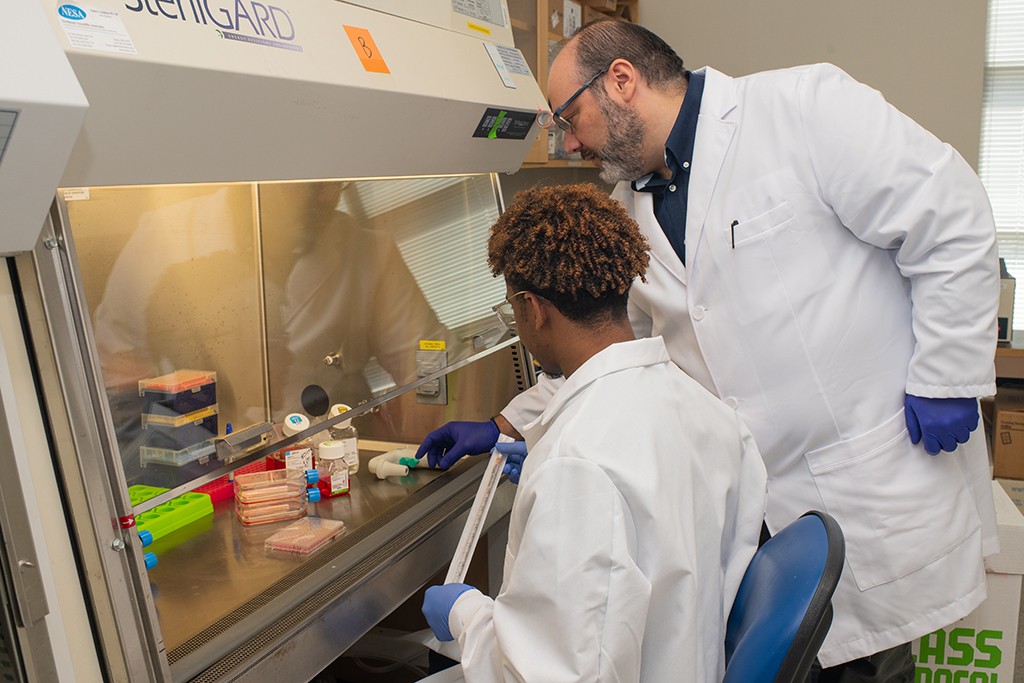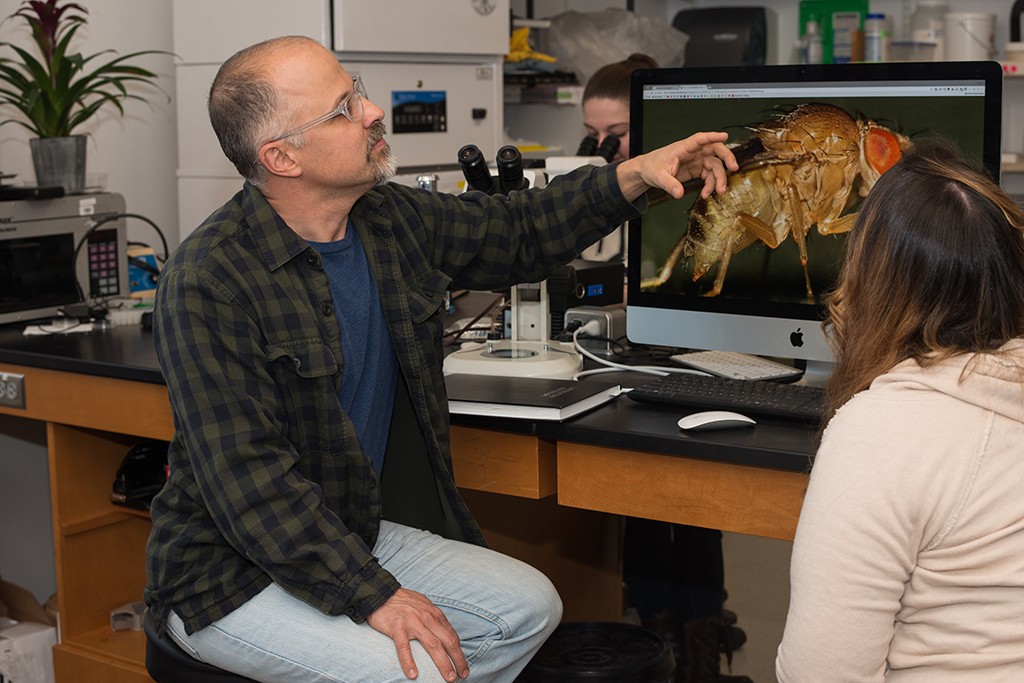Neuroscience Research
The center is composed of a diverse group of neuroscientists. This diversity in neuroscience specialties provides a unique opportunity for collaboration among center members, as well as new perspectives on your own research. The center continues to expand and diversify the neuroscience faculty at UNE through the recruitment of new faculty. Faculty also have access to:
- State-of-the-art neuroscience equipment
- Center for Pain Research pilot project funding
- UNE Research Cores
- Mini-grants to cover research core invoices
- Funding for travel
- The CEN Journal Club
Current Faculty Research: Fruit Flies and Chronic Pain
Take a look at the research that Biology professor Geoffrey Ganter, Ph.D., performs with the help of UNE students. Ganter’s lab focuses on studying fruit flies to understand the cellular, molecular, and genetic mechanisms of chronic pain.
Student Research
There are numerous research opportunities for both undergraduate and graduate students in neuroscience labs. Many of these students have presented their research at international conferences and contributed to publications.


Center for Pain Research (COBRE)
The Center for Pain Research (COBRE) was established in 2012 through funding from the National Institute of General Medical Sciences (NIGMS). The center is composed of a group of laboratories, within the Center for Excellence in the Neurosciences, who study the neurobiology of chronic pain. There are many opportunities for students in the Center labs. For faculty, this center offers a pilot project program, which provides funding for chronic pain research.
Research Cores
The Center also supports two state-of-the art research facilities, the Behavior Core and the Histology and Imaging Core, which carry out cutting-edge research. The two cores provide expertise and training and use of specialized instrumentation and both welcome internal and external users.
Pain Education Collaborative
The Center for Excellence in the Neurosciences, along with the Center to Advance Interprofessional Education and Practice (CAIEP, formerly the Center for Excellence in Collaborative Education), brings together groups of health care professionals, scientists, educators, scholars, and students who share a passion for transforming pain prevention, care, education, and research.

